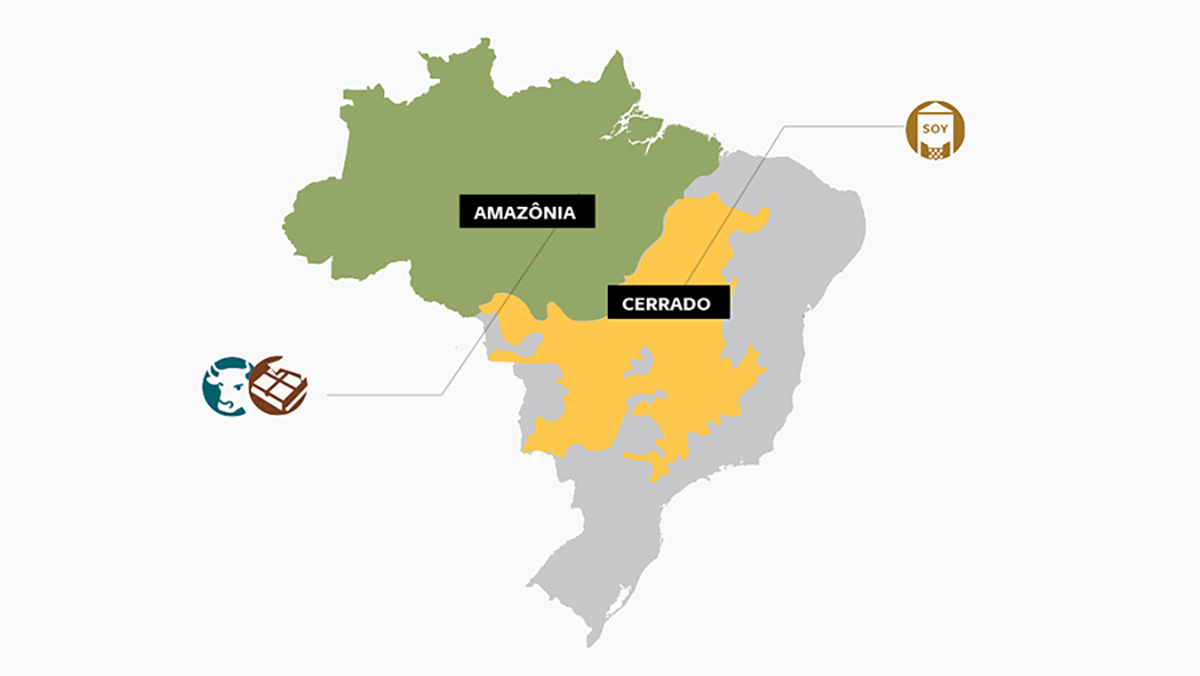A partir do engajamento de atores de mercado chinês e de investidores globais, estratégia contribui para a construção de soluções práticas em prol da redução do desmatamento na Amazônia e no Cerrado. O objetivo é mitigar e adaptar os efeitos das mudanças climáticas
Com o objetivo de influenciar e contribuir para a agenda climática global com práticas agropecuárias sustentáveis, no caminho para o uso mais eficiente do solo que alcance o desmatamento zero na Amazônia e Cerrado, a Solidaridad Brasil lidera a estratégia Conexão Brasil-China-EUA: mobilizando mercado e investidores e alavancando a produção de baixo carbono. A iniciativa promove o engajamento de empresas e investidores dos principais mercados consumidores internacionais de soja e carne produzidos no país, como é o caso da China. A proposta é ampliar negócios que garantam produtos de baixo carbono, com a manutenção da vegetação nativa e o fomento à boa governança ambiental.
A partir da atuação nos biomas Amazônia e Cerrado, busca-se promover uma agropecuária de baixo carbono que possibilite o aumento da produção e uso eficiente da terra. Para isso, a Solidaridad Brasil atua na articulação dos principais atores para promover boas práticas e inovação nas propriedades rurais. Atuamos em parceria com associações, cooperativas, pecuaristas, produtoras e produtores rurais, traders e governos locais cuja atuação se concentra em Novo Repartimento, no Pará, e em Alta Floresta, no Mato Grosso, ambos no bioma amazônico, e na região do Matopiba — área de interface dos estados do Maranhão, Piauí, Tocantins e Bahia —, no Cerrado.
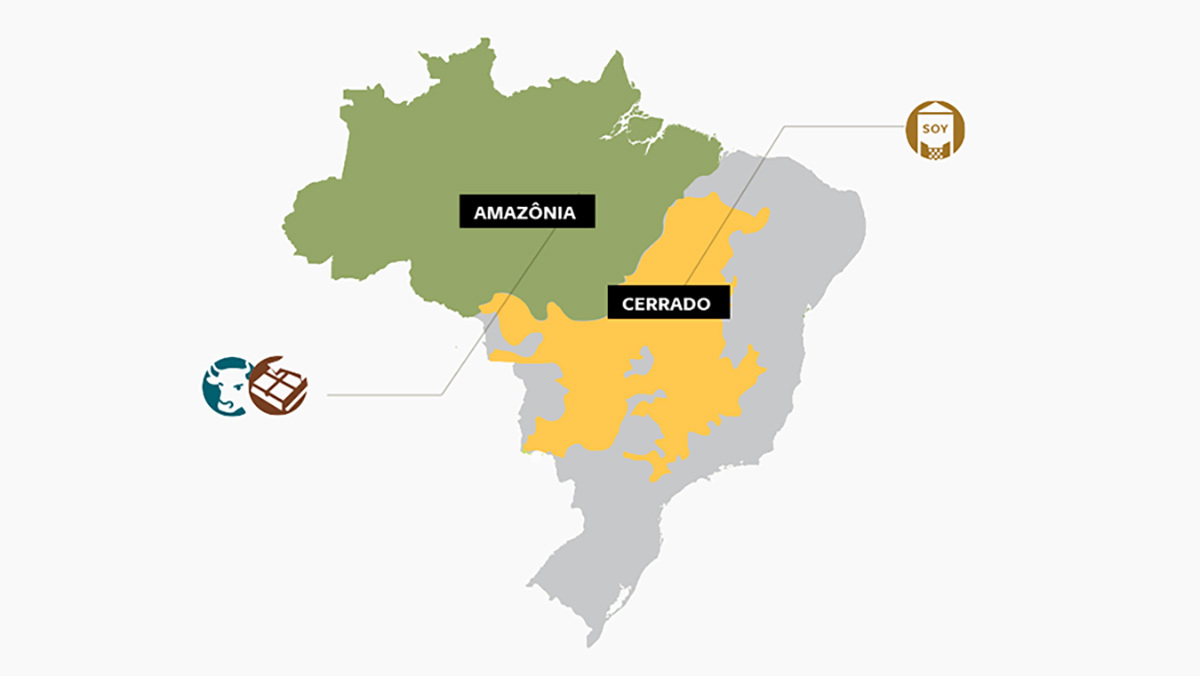
“Entendemos que atuar nos territórios, melhorando o ambiente de negócio a partir da governança local, e facilitar parcerias com os diversos elos da cadeia de produção agropecuária, em âmbitos nacional e internacional, nos levará a intervenções de longo prazo, as quais podem alavancar o acesso à tecnologias e investimentos para uma agricultura de baixo carbono e manutenção das florestas”, afirma a Gerente de Agricultura e Conservação da Solidaridad Brasil, Joyce Brandão.
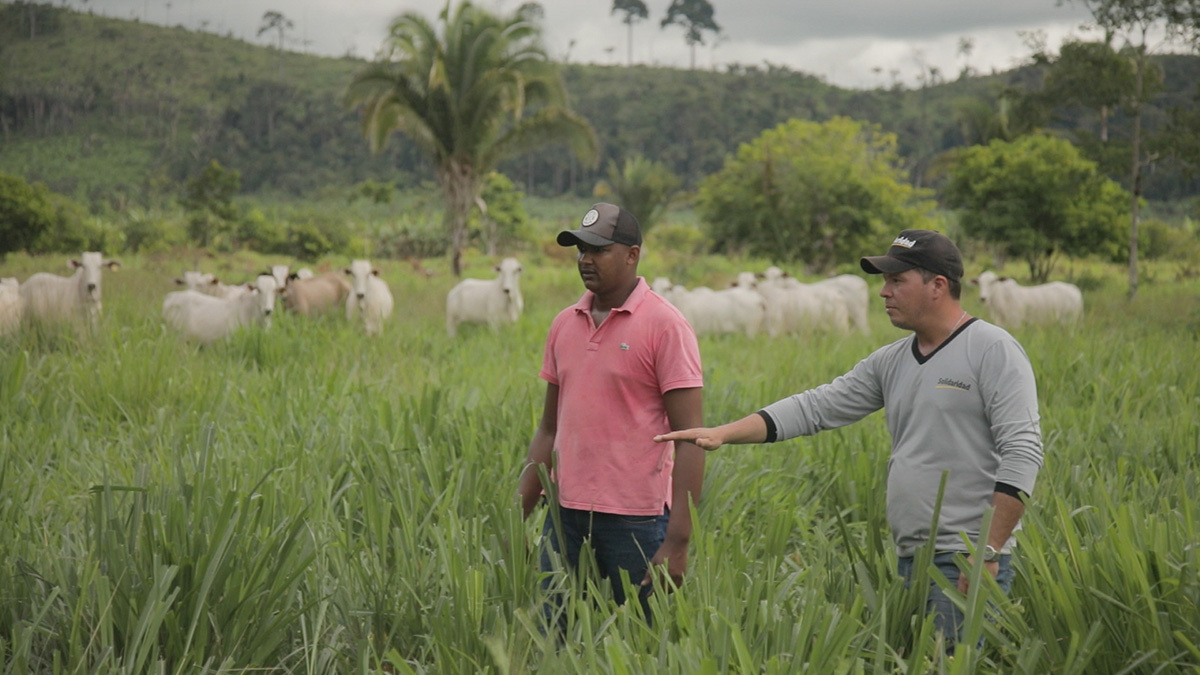
RESULTADOS ESPERADOS
A estratégia espera alcançar cinco resultados. O primeiro, enfoca na agropecuária de baixo carbono nos dois maiores biomas brasileiros, por meio da intensificação de práticas sustentáveis na pecuária. O segundo busca alavancar a agenda de mitigação e adaptação aos efeitos da mudança climática na produção de soja no Cerrado, a partir da restauração de pastagens degradadas pela agricultura e do manejo dos solos. Já o terceiro preconiza a promoção da melhoria da governança ambiental e de soluções inclusivas para pequenas e pequenos produtores na região amazônica de Novo Repartimento, estado do Pará.
O quarto resultado contempla o engajamento e a construção de critérios de produção sustentável para soja e carne junto a importadores chineses. Por fim, o quinto salienta o engajamento das principais companhias globais, via investidores, em torno do compromisso de reduzir a conversão nas áreas de produção de soja.
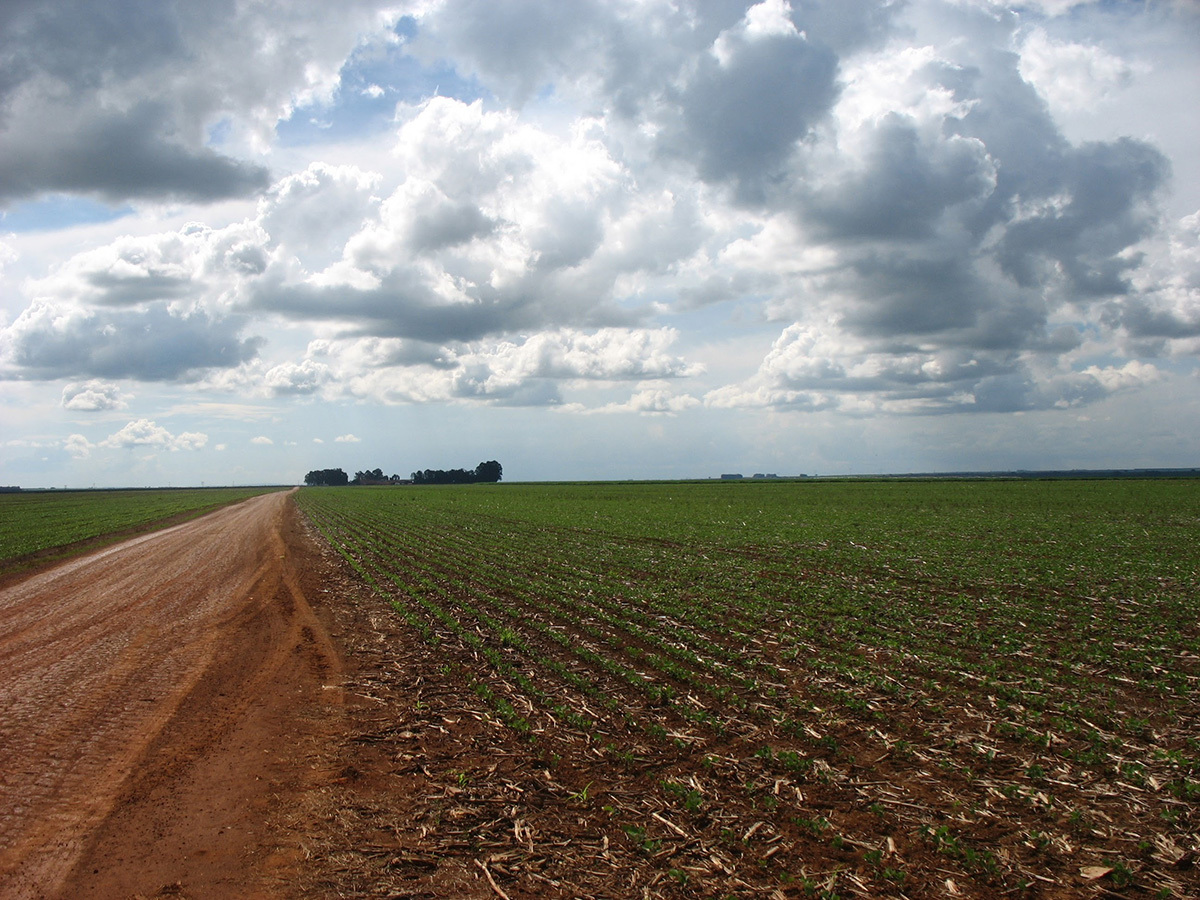
A estratégia Conexão Brasil-China-EUA: mobilizando mercado e investidores e alavancando a produção de baixo carbono é financiada pela Agência Norueguesa de Cooperação para o Desenvolvimento (Norad), por meio da Iniciativa Internacional Norueguesa de Clima e Florestas (NICFI). A NICFI concede financiamento a projetos que contribuem para salvar as florestas tropicais do mundo e promover o aumento da qualidade de vida das pessoas que vivem dentro, perto e a partir das florestas.
LOW-CARBON FARMING PRACTICES IN GLOBAL PRODUCTIVE CHAINS THAT CONTRIBUTE TO MITIGATING AND ADAPTING CLIMATE CHANGE
Based on the engagement and active participation of players from the Chinese market and global investors, Solidaridad Brazil’s strategy contributes to creating practical solutions to reduce deforestation in the Amazon and the Cerrado
Solidaridad Brazil leads the Brazil-China-USA Connection: mobilizing the market and investors and leveraging low-carbon production strategy, with the objective of influencing and contributing to the global climate agenda with sustainable agricultural practices, on the path to more efficient land use that achieves zero deforestation in the Amazon and Cerrado. The initiative promotes the engagement of companies and investors in the leading international consumer markets for soy and meat produced in the country, like in China. The proposal is to grow businesses that guarantee low-carbon products by maintaining native vegetation and promoting good environmental governance.
Based on operations in the Amazon and Cerrado biomes, the aim is to promote low-carbon agriculture that permits increased production and efficient land use. To make this possible, Solidaridad Brazil works on organizing the primary actors to promote good practices and innovation on rural properties. We work in partnership with associations, cooperatives, cattle ranchers, men and women rural producers, traders, and local governments whose operations are concentrated in the towns of Novo Repartimento, in Pará (PA), and Alta Floresta, in Mato Grosso (MT), both in the Amazon biome of Brazil, and in the Matopiba region – the borders of the states of Maranhão (MA), Piauí (PI), Tocantins (TO), and Bahia (BA) – in the Cerrado.
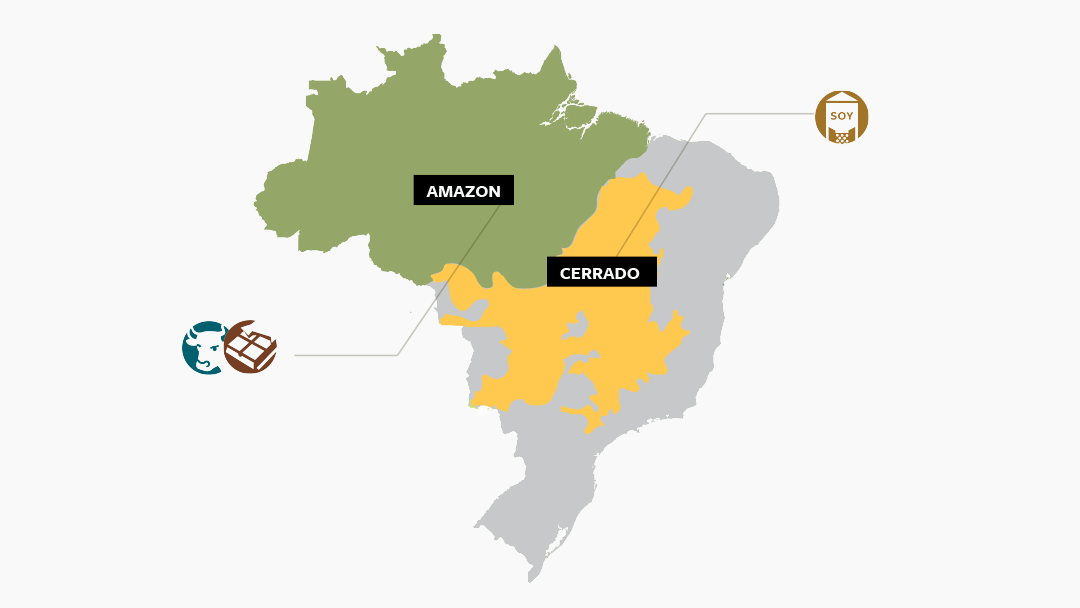
“We understand that working in the territories, improving the business environment based on local governance, and facilitating partnerships with the various links in the agricultural production chain, at national and international levels, will lead us to long-term interventions, which can leverage the access to technology and investments for low-carbon agriculture and forest maintenance,” said Solidaridad Brazil’s Agriculture and Conservation Manager, Joyce Brandão.
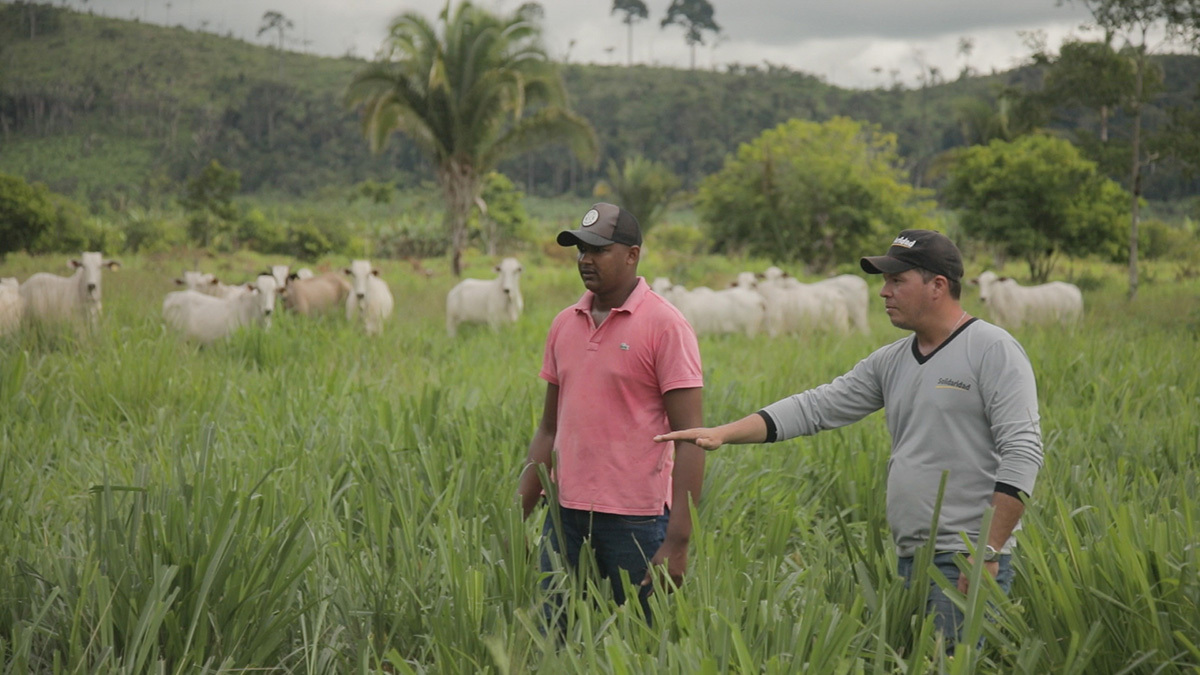
EXPECTED RESULTS
The strategy hopes to achieve five results. The first focuses on low-carbon agriculture in the two largest Brazilian biomes by intensifying sustainable livestock practices. The second intends to leverage the mitigation and adaptation agenda to the effects of climate change on soy production in the Cerrado, based on the restoration of pastures degraded by agriculture and soil management. The third advocates for the improvement of environmental governance and inclusive solutions for small producers in the Amazon region of Novo Repartimento, PA.
The fourth result includes engaging and constructing sustainable soy and meat production criteria with Chinese importers. Lastly, the fifth stresses engaging the leading global companies, via investors, in the commitment to curtail conversion in the soy production areas.
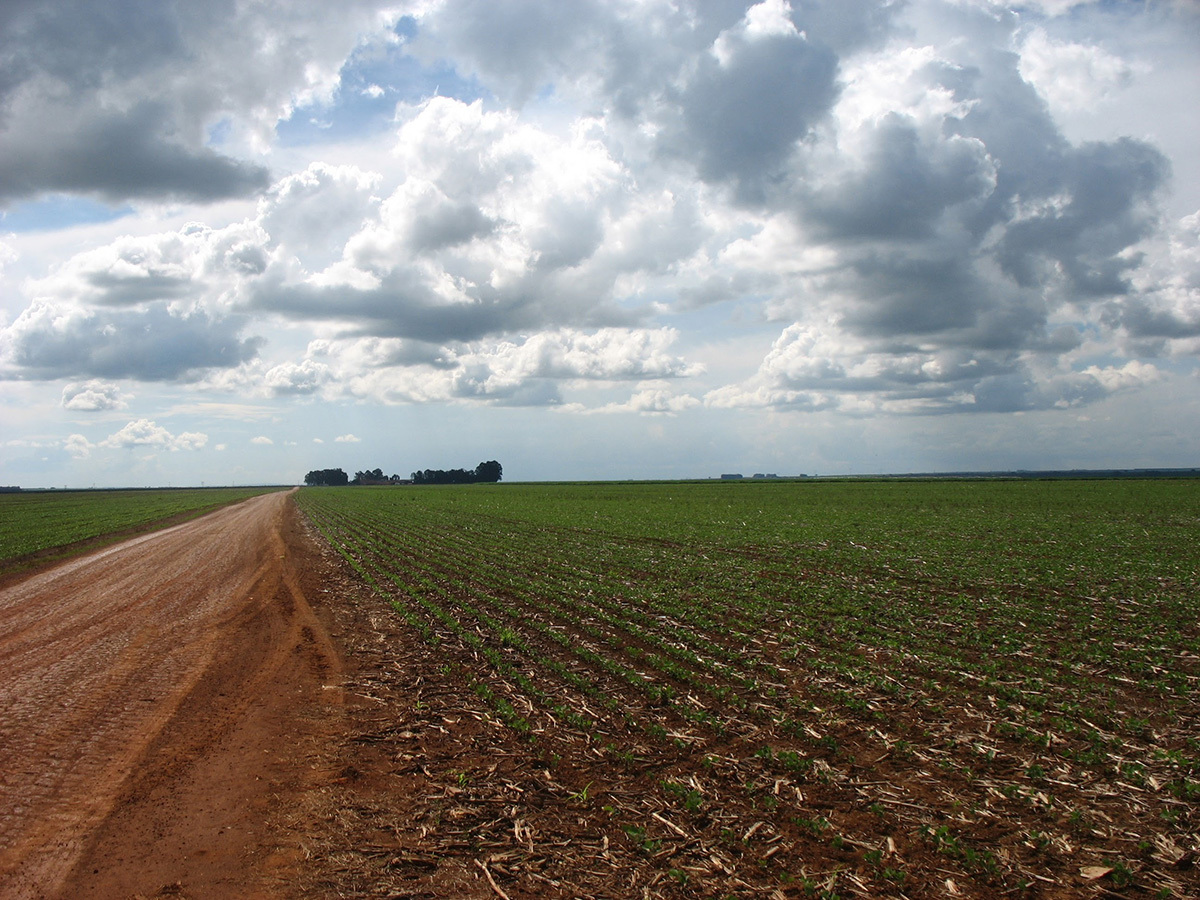
The Brazil-China-USA Connection: mobilizing the market and investors and leveraging low-carbon production strategy is funded by the Norwegian Agency for Development Cooperation (Norad), through Norway’s International Climate and Forest Initiative (NICFI). NICFI provides funding for projects that contribute to saving the world’s tropical rainforests and promoting an increase in the quality of life for people living in, near, and off of the forests.

